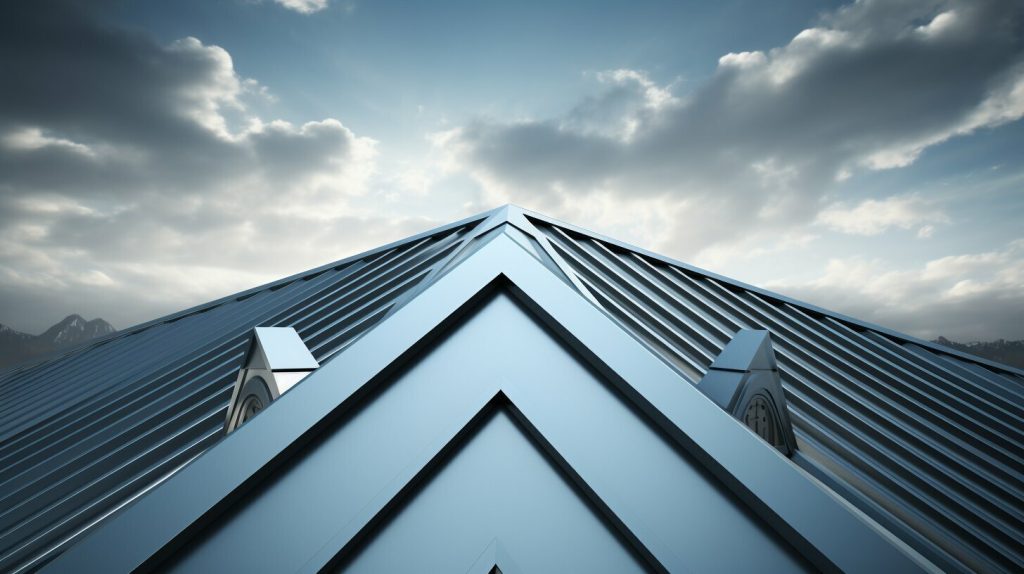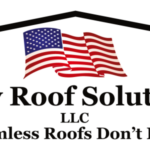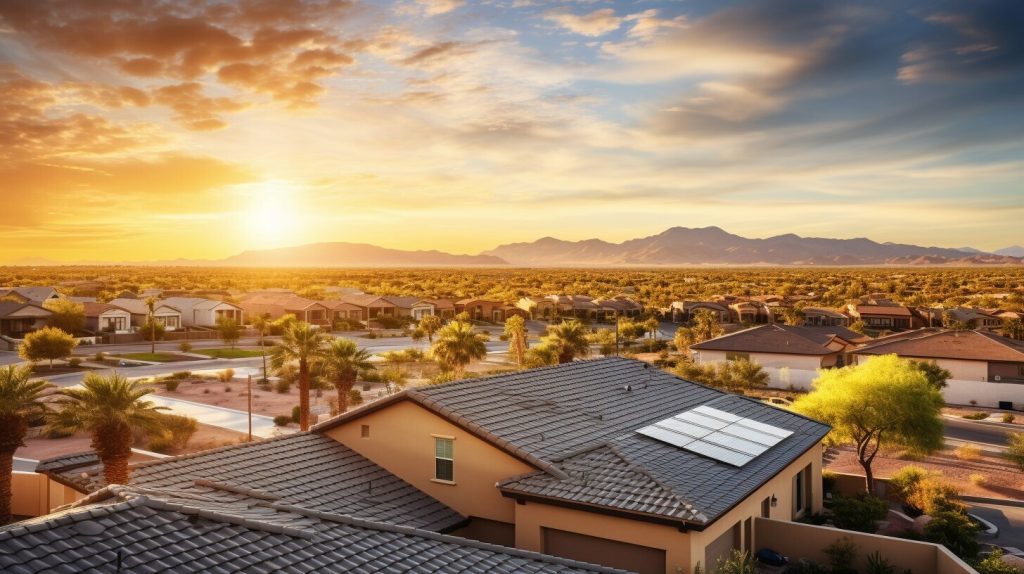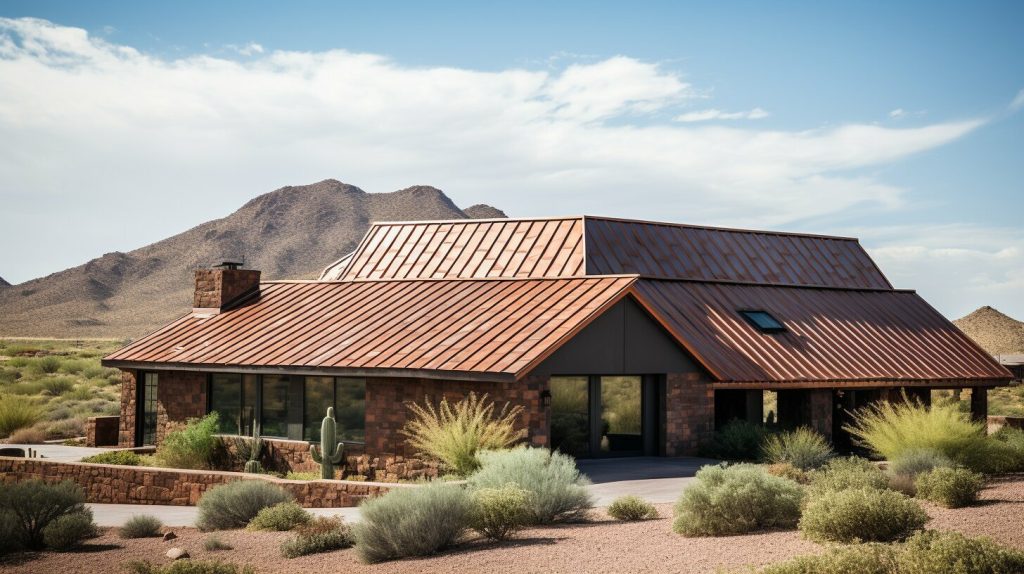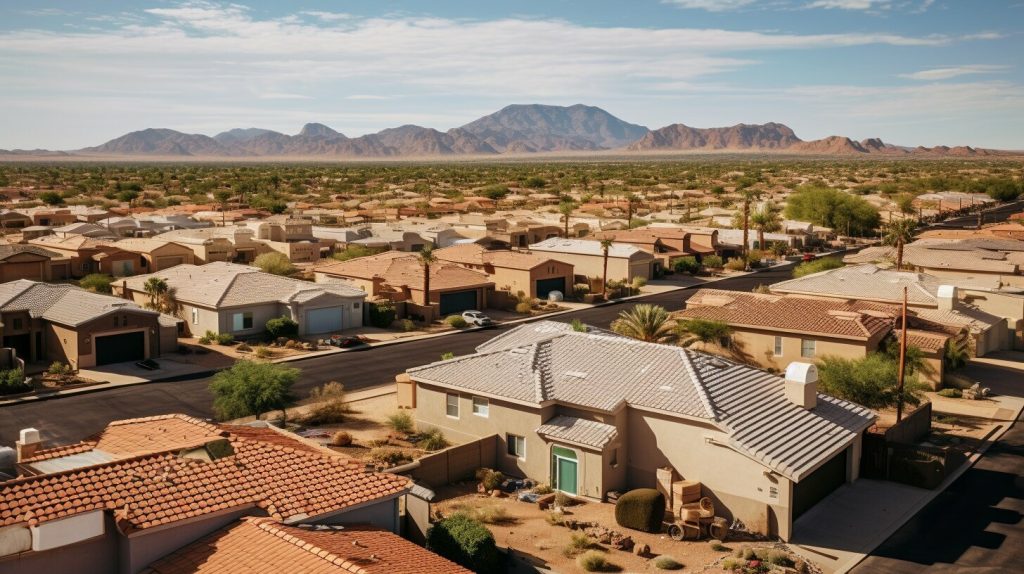When it comes to deciding on the right roofing choice for your commercial property, there are many factors to consider. Metal roofing has become an increasingly popular option due to its durability, longevity, and energy efficiency. However, it’s important to weigh the pros and cons before making a decision.
In this article, we’ll take a closer look at the benefits and drawbacks of metal roofing. We’ll also discuss the important factors to consider when choosing metal roofing, as well as the installation and maintenance processes. By the end of this article, you’ll have a comprehensive understanding of whether metal roofing is the right choice for your commercial property.
Key Takeaways
- Metal roofing is a durable and long-lasting option for commercial properties
- There are both benefits and drawbacks to choosing metal roofing
- Important factors to consider include the type of metal, finish, style, and color options
- Proper installation and maintenance can ensure the longevity and durability of your metal roof
- By weighing the pros and cons and considering important factors, you can make an informed decision about whether metal roofing is right for your property
Benefits of Metal Roofing
If you’re looking for a roofing solution that offers longevity, low maintenance requirements, and energy efficiency, metal roofing could be the perfect fit for your commercial property. In this section, we’ll discuss the advantages of metal roofs and why they should be a consideration for your roofing choice.
Energy Efficiency
Metal roofs reflect sunlight, preventing heat from being absorbed into the building and reducing cooling costs. Additionally, some metal roofs can be coated with special reflective pigments to enhance this effect even further. This makes metal roofing a more environmentally friendly choice as well.
Longevity
Metal roofing is known for its durability and longevity. Unlike traditional roofing materials which may require frequent repairs or even replacement, metal roofs can last upwards of 50 years with little maintenance required. This makes them a more cost-effective solution in the long run.
Low Maintenance
Metal roofs are relatively low maintenance, requiring little upkeep throughout their lifespan. They are resistant to rot, insects, and mildew, eliminating the need for constant cleaning or repair. This is especially beneficial for commercial properties that may have limited maintenance resources.
Resistant to Fire and Weather
Metal roofs are also resistant to fire, wind, and hail damage, making them a popular choice for areas prone to extreme weather conditions. This increased durability provides a greater sense of security and protection for your property and its occupants. In addition, metal roofs are also resistant to rust and corrosion, ensuring their longevity even in harsh environments.
Wide Range of Styles and Colors
Metal roofing comes in a variety of styles and colors, making it a versatile choice for any commercial property. Whether you need a roof that complements the architectural style of your building or want to add a unique design element, metal roofing offers a wide range of options to choose from.
In conclusion, the benefits of metal roofing are numerous and can provide a long-lasting, energy-efficient, and low maintenance roofing solution for your commercial property. By considering these advantages, you can make a well-informed decision when it comes to selecting the right roofing choice for your needs.
Drawbacks of Metal Roofing
While there are many benefits to choosing a metal roof, it’s important to consider the potential drawbacks as well.
Initial Cost
One of the biggest drawbacks of metal roofing is the initial cost. Metal roofing can be significantly more expensive than traditional roofing materials like asphalt shingles. However, it’s important to remember that while the initial investment may be higher, metal roofing can often last up to 50 years or more with proper installation and maintenance. This means that over time, the cost of a metal roof can actually be more cost-effective compared to other roofing materials that need to be replaced more frequently.
Noise
Another potential drawback of metal roofing is noise. During heavy rain or hailstorms, metal roofs can be significantly louder than other roofing materials. However, with proper installation and insulation, the noise can be minimized. Additionally, many people enjoy the sound of rain on a metal roof!
Denting
One concern with metal roofing is denting. While metal roofs are incredibly durable, they can dent if hit with enough force, such as from falling branches or hail. However, most dents are purely cosmetic and do not affect the performance of the roof. Choosing a thicker gauge metal can also help minimize the risk of denting.
Overall, while there are some potential drawbacks to metal roofing, they are outweighed by the numerous benefits. By weighing the pros and cons and considering the specific needs of your commercial property, you can make an informed decision about whether metal roofing is the right choice for you.
Factors to Consider When Choosing Metal Roofing
Choosing the right roofing material for your commercial property is a big decision, and metal roofing is no exception. To make the best choice for your needs, there are several important factors to consider:
Type of Metal
One of the first decisions to make is which type of metal you want for your roof. The most common metals used for commercial roofing are steel and aluminum. Steel is a more affordable option, but it may be more prone to rusting. Aluminum is more expensive, but it’s lightweight and rust-resistant.
Finish
The finish of your metal roof can impact both its appearance and durability. A painted finish can add color and texture to your roof, but it may be more susceptible to fading over time. A natural metal finish, on the other hand, can offer a sleek, modern look and may require less maintenance.
Style and Color Options
Metal roofing comes in a variety of styles and colors, so it’s important to choose a design that complements your property’s overall aesthetic. Standing seam roofs are a popular choice for commercial buildings, but there are also metal shingle, tile, and slate options available.
Energy Efficiency
Metal roofing is known for its energy efficiency, which can help reduce your building’s energy costs. Look for a metal roof with a high Solar Reflectance Index (SRI) rating, which indicates how effectively the roof reflects solar heat.
Cost
Metal roofing can be a more expensive option upfront, but it can also last up to 50 years or more with proper maintenance. When considering the cost, it’s important to factor in the long-term value and potential cost savings of a metal roof.
Installation Requirements
Metal roofing requires a specialized installation process, so it’s important to choose a contractor with experience in metal roofing installation. Take the time to research contractors and read reviews to ensure you’re getting quality work.
- Choosing metal roofing is a big decision, and there are several important factors to consider to make the best choice for your commercial property.
- Consider the type of metal, finish, style and color options, energy efficiency, cost, and installation requirements when selecting a metal roof.
Metal Roofing Installation and Maintenance
Once you’ve made the decision to install a metal roof on your commercial property, it’s important to understand the installation process and how to properly maintain it to ensure its longevity.
Metal Roofing Installation
Installing a metal roof requires specific skills and equipment, which is why it’s recommended to hire a professional roofing contractor. They will ensure proper installation to avoid any leaks, gaps, or other issues that can compromise the roof’s effectiveness.
During installation, the first step is to remove the old roof and install an underlayment to prevent water damage. Next, the metal panels or shingles are installed, taking care to properly overlap and fasten them to ensure a secure fit. Finally, accessories such as flashings and gutters are installed to ensure proper drainage and prevent water damage.
Metal Roof Maintenance
One of the major benefits of a metal roof is its low maintenance requirements. However, regular maintenance is still necessary to prevent any issues from arising.
Cleaning the roof is an important maintenance task. This can be done with a soft-bristled brush or a pressure washer, being careful not to damage the roof’s surface. It’s recommended to clean the roof at least once a year, or more often if you live in an area with heavy rainfall or high humidity.
It’s also important to inspect the roof regularly, checking for any damage or wear and tear. Any issues should be addressed promptly to prevent further damage and preserve the roof’s longevity.
Conclusion
Metal roofing offers a durable and long-lasting solution for commercial properties. Proper installation and maintenance are essential to ensure its effectiveness and longevity. By following these tips, you can ensure your metal roof provides reliable protection for years to come.
Conclusion
After weighing the pros and cons and considering important factors, we hope that you have a better understanding of whether metal roofing is the right choice for your commercial property.
While metal roofing offers numerous benefits, such as longevity, energy efficiency, and low maintenance requirements, there are also some drawbacks to consider, such as the initial cost and potential noise or denting issues.
When it comes to choosing metal roofing, important factors to consider include the type of metal, finish, style, and color options. By taking the time to consider these factors, you can select the best metal roofing solution for your specific needs and preferences.
Once you have chosen your metal roofing, proper installation and maintenance are essential for ensuring its longevity and durability. Be sure to hire a professional roofing contractor and follow recommended maintenance tasks and considerations.
Final Thoughts on Metal Roofs
In conclusion, metal roofing can be a great choice for many commercial properties due to its durability, energy efficiency, and low maintenance requirements. By carefully considering the pros and cons, important factors, and proper installation and maintenance, you can enjoy the benefits of a metal roof for years to come.
FAQ
What are the benefits of metal roofing?
Metal roofing offers various benefits, including durability, longevity, energy efficiency, and low maintenance requirements. It can withstand extreme weather conditions and can last for several decades with proper care.
Are there any drawbacks to metal roofing?
While metal roofing has numerous advantages, there are some potential drawbacks to consider. These include the initial cost, noise during rain or hailstorms, and the possibility of denting from heavy impacts.
What factors should I consider when choosing metal roofing?
When selecting metal roofing, important factors to consider include the type of metal (such as steel or aluminum), the finish and coating options, the style and color choices, as well as your budget and specific requirements.
How is metal roofing installed, and how do I maintain it?
Metal roofing installation requires professional expertise. Regular maintenance involves cleaning debris, inspecting for any damage, and ensuring proper drainage. It’s essential to follow manufacturer recommendations and consult a professional for any repairs or maintenance tasks.
Is metal roofing a suitable choice for my commercial property?
The suitability of metal roofing for your commercial property depends on several factors, including your budget, location, aesthetic preferences, and specific requirements. By understanding the pros and cons, considering important factors, and consulting with professionals, you can make an informed decision.

